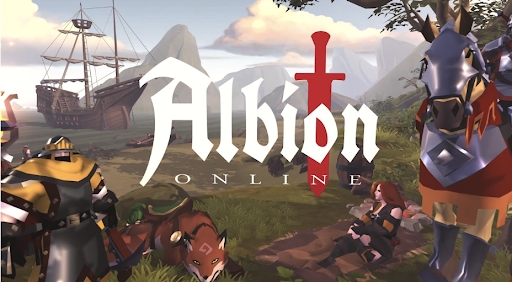The MMO landscape is shifting. For years, players chased the next big theme park game, chasing loot drops and scripted raids like they were going out of style. But lately, there’s been a quiet resurgence of sandbox MMOs, the kind where the players create the story, not the devs. Albion Online is leading the charge.
Unlike the quest-heavy MMOs that flood your screen with glowing icons, Albion throws you into a world where you’re just another settler trying to survive and thrive. Want to craft swords and sell them in town? Go for it. Prefer roaming the black zones in a tight-knit guild, hunting for PvP fights? You can do that too. The economy is player-driven, and so is the chaos. It’s no surprise then that some players choose to buy Albion Online silver to get a jumpstart on the grind.
The Core of Sandbox Freedom
In a sandbox MMO, you’re not the chosen one. You’re a blacksmith. Or a farmer. Or a rogue who waits in the shadows, hoping someone hauling rare ore makes a mistake. This structure appeals to players who are tired of being force-fed lore and want to build their own.
Albion leans into this philosophy harder than most. There are no character classes. Your gear defines your role, and you can swap builds at any time, as long as you’ve trained the right skills. It rewards flexibility and experimentation, which is something rare in a genre that’s been stagnant for too long.
Risk vs. Reward Keeps Things Interesting
Albion’s full-loot PvP system might sound brutal. It is. If you die in the black zones, everything you’re wearing and carrying can be looted. But that’s exactly what makes every choice meaningful.
Deciding whether to venture out with high-tier gear becomes a gamble. Guilds set traps, gankers roam in packs, and some players risk it all to transport goods across dangerous territories. There’s tension in every step, and that’s what keeps people hooked. It’s like poker with swords.
Player-Driven Economies Are Actually Exciting
The entire economy in Albion Online is controlled by players. If no one gathers stone, there will be no stone to buy. If crafters don’t produce high-quality gear, it won’t magically appear on shelves. Every trade, every resource, every silver coin has a story behind it.
Markets are local too. Prices differ between cities, which leads to real-world trading behavior. Some players literally spend their play sessions running goods from one region to another, hoping to profit off supply and demand. Others try to manipulate prices by controlling rare materials or cornering the market on popular items.
It turns casual traders into tycoons and peaceful gatherers into valuable targets. It also turns a game about swords and spells into a surprisingly complex economic simulation.
Guilds Actually Matter
In too many MMOs, guilds are just glorified chat rooms. In Albion, they’re lifelines. Owning territory, defending hideouts, and organizing large-scale wars are things only active, coordinated guilds can pull off.
Guilds claim zones on the map, harvest resources, and build their own economies. They also fight, sometimes brutally, for power. Political drama, betrayals, and revenge stories unfold on a weekly basis. It feels less like a game and more like a medieval Game of Thrones played out across digital landscapes.
Some guilds even enforce taxes and laws. Others exist purely to harass and disrupt the established order. There’s a place for everyone, whether you want to be a noble knight or an absolute menace.
No Pay-to-Win, But Definitely Pay-for-Convenience
There’s a fine line between letting players support the game and letting them buy power. Albion handles this better than most. You can buy premium with real money, which gives you extra fame gain, resource yield, and a few other bonuses. You can also trade real-world money for silver, the in-game currency.
But the kicker is, you still have to play. Buying silver doesn’t win fights or craft gear automatically. It just accelerates things a little, like skipping the early steps on a long ladder. And if you don’t know what you’re doing, throwing money at it won’t fix bad decisions. That’s a big reason why Albion maintains balance despite monetization.
As reported by PC Gamer in their deep dive into Albion’s rise, the game’s core design remains intact even with its free-to-play model and in-game transactions. That’s not easy to pull off.
Accessibility Without Losing Depth
One of Albion’s biggest strengths is its simplicity. The graphics are clean and stylized, with an isometric view that makes it feel like an old-school RPG. The interface is easy to grasp, and the game runs well on even older systems and even mobile.
But that simplicity hides serious depth. Behind the click-to-move gameplay lies a system where minor stat differences and cooldown timings can determine the winner of a fight. Build diversity is staggering, and there’s always some weird off-meta combo popping up that makes you rethink your loadout.
It’s easy to get into but hard to master. That balance is what keeps the player base coming back.
The Community is Wild in a Good Way
No sandbox MMO works without a strong player base, and Albion’s community is one of its defining features. Whether it’s small-time guilds running local protection rackets or massive alliances vying for control of entire regions, there’s always something happening.
The official forums, Discord servers, and in-game chat are packed with recruitment pitches, trade deals, and arguments over territory. It’s chaotic, yes, but also full of life. You’re not just playing a game, you’re stepping into a living, breathing world.
Events like faction wars, guild season rankings, and player-run tournaments add even more flavor. And if you prefer solitude, you can still carve out a peaceful life gathering herbs in the Royal Continent. Just watch your back.
Why It’s Not Just a Fad
Some people write off sandbox MMOs as niche or too hardcore. But Albion Online proves that when done right, they’re incredibly engaging. The combination of risk, freedom, and player agency scratches an itch that traditional MMOs have ignored for too long.
You don’t need cutscenes and dialogue trees when the players themselves create the drama. You don’t need an endgame raid if owning a city and holding it for three weeks is more satisfying. Albion’s success is a reminder that sometimes, less direction leads to more fun.
As more players grow tired of the same recycled quests and theme park mechanics, games like Albion Online offer something fresh. Something unpredictable. Something real.
And that’s why sandbox MMOs aren’t just coming back. They never really left.































